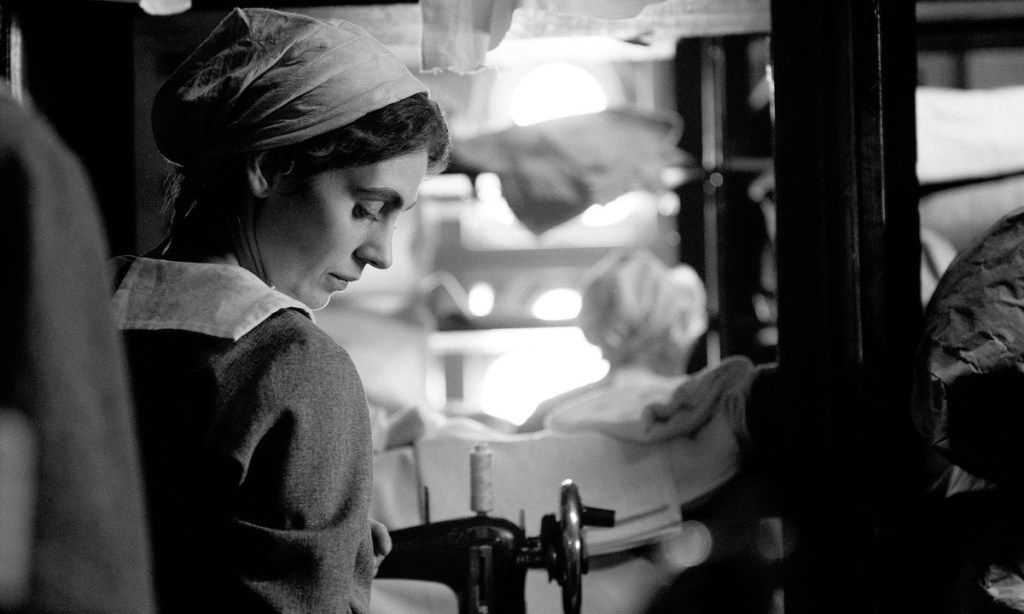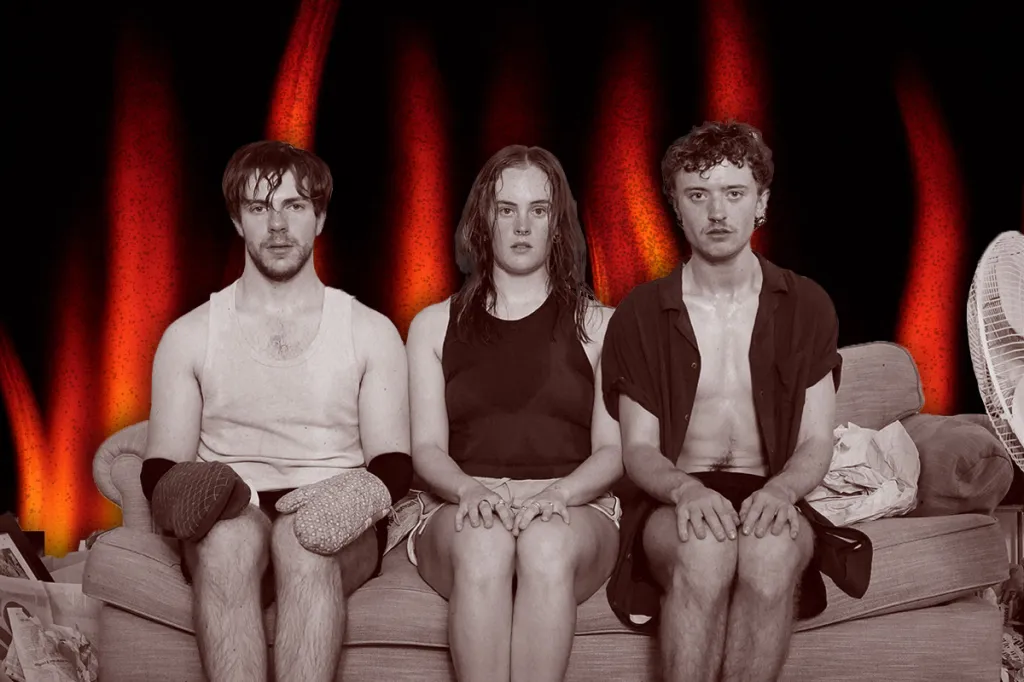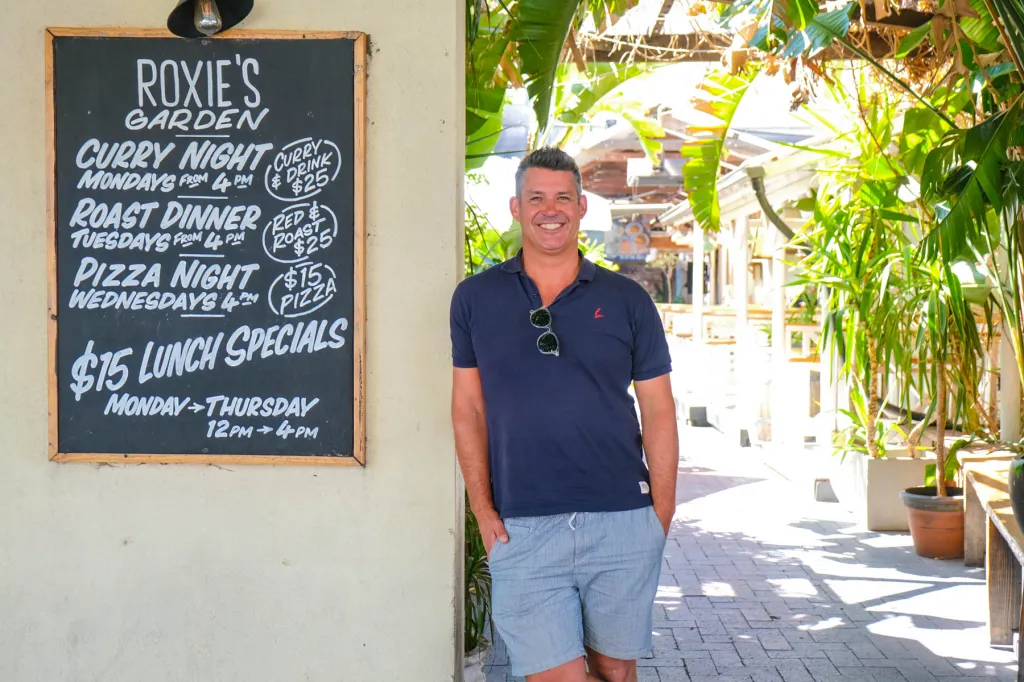Disturbingly beautiful and captivatingly desperate, this Gothic true-crime tale highlights an unsettling lack of support for society’s most forgotten and lonely.
A barrage of grotesque, intertwining faces appear during the opening of The Girl with the Needle. As they twist and contort, smiling and screaming, we are unable to distinguish any distinct facial features. This disturbing montage is just the beginning of a torrent of horrific realities in the film that convey the very real horrors faced by those who are imprisoned by poverty, war and conflict.
Selected as Denmark’s official entry for next year’s Academy Awards in the “International Feature Film” category, director Magnus von Horn’s chilling film is loosely based on the true story of the Danish serial killer, Dagmar Overbye, who offered the false promise of help to dozens of struggling women.
Interestingly, von Horn is not concerned with crafting a traditional serial killer biopic.
Instead, he utilises the perspective of Karoline Nielson (Vic Carmen Sonne) – a woman who personally suffered at the hands of Dagmar’s atrocities – to create an empathetic portrayal of the true crime events. Throughout the film, von Horn emphasises the challenges of navigating womanhood, especially motherhood, in an era of constant struggle.
Set in post-WWI Copenhagen, the film follows Karoline (the titular girl with a needle).
Karoline is a factory worker and a seamstress, a young woman trying to survive in a world that is not made for her. After her husband is declared missing in action during the war, Karoline struggles to make ends meet. Her factory boss, Jørgen (Joachim Fjelstrup), offers to lend a helping hand.
While their romance initially blooms, a newly pregnant Katherine finds herself rejected by Jørgen’s wealthy, upper-class family. Pregnant, poor and alone, Karoline is desperate and director von Horne does not shy away from the lengths that Karoline will go to change her situation, leading to one of the film’s most uncomfortably visceral scenes.
Following the unexpected return of her disfigured and emotionally traumatised husband, Karoline finds her way into the employ of candy store owner Dagmar (Trine Dyrholm).
The two woman both sit unwillingly on the outskirts of society and soon begin to develop a uniquely independent, feminine lifestyle. They work and live together, attempting to provide relief to young mothers in need, whilst also slowly numbing their own emotional capacities through the use and abuse of Ether. They begin to foster an unusual familial dynamic with Dagmar’s self-proclaimed daughter, Erena (Avo Knox Martin), who begins to see Karoline as another maternal figure.
One of the highlights of The Girl with the Needle is Sonne’s captivating performance, which conveys the essence of feminine rage in moments when her emotions are simply too much to bear. Her facial contortions relay a pain that is ever-present: we rejoice in her highest highs, and empathise, or wince during her lowest lows.
Throughout the film, director Von Horn withholds moral judgment as the film’s true-crime events unfold, a detachment that is enhanced by the film’s chiaroscuro aesthetic.
Subscribe for updates
Artfully composed by cinematographer, Michal Dymek (Pierce, A Real Pain, Unmoored), The Girl with the Needle is a unique and visually stunning depiction of an oppressive, industrial Copenhagen, oftentimes conveying moments of beauty in a stark landscape.
For anyone wanting to explore a female-focused, true crime film and historic biopic, The Girl with the Needle provides a unique, at times confronting exploration into socially hidden truths and a canny portrayal of one woman (Karoline, a stand-in for many women of the time), betrayed by those around her and a broken system.
The Girl with a Needle screens on Saturday November 2 at 12pm at the Piccadilly Cinema.
This review was provided by the “2024 Emerging Screen Critics Program” – a Screen Studies collaboration between the Adelaide Film Festival and UniSA Creative, with the participation of students and mentors from the University of South Australia, the University of Adelaide and Flinders University. Supported by CityMag.


